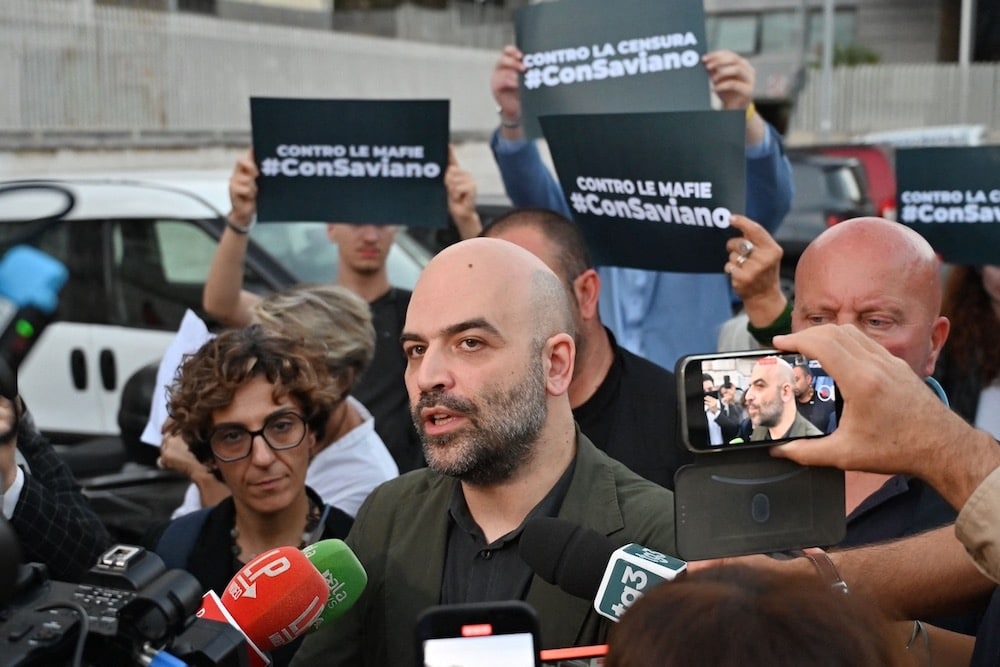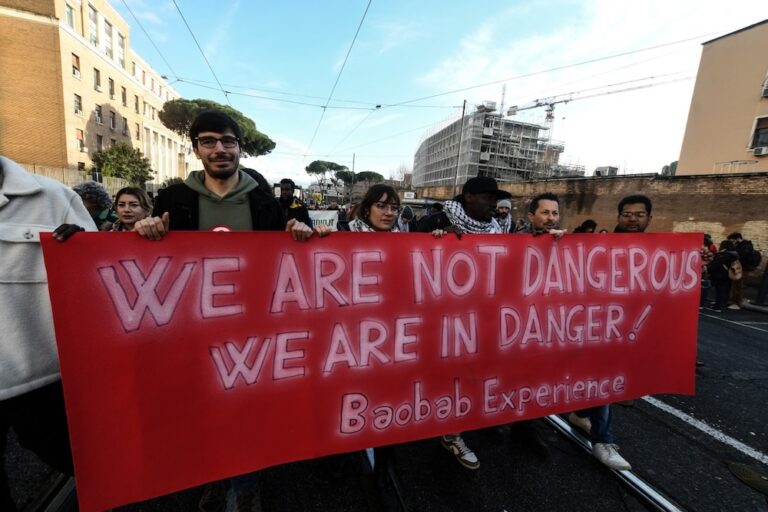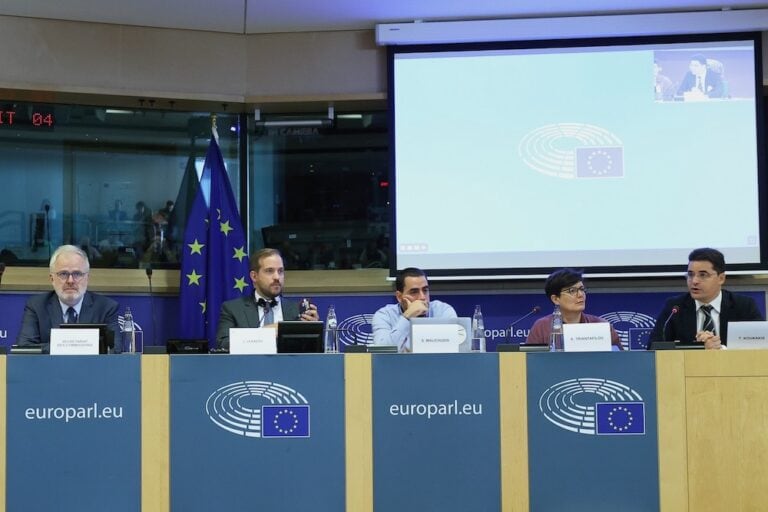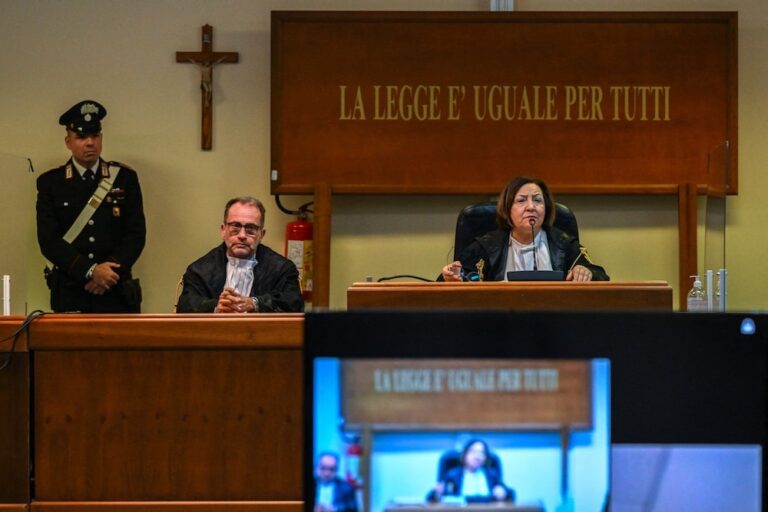On 12 October 2023, the Criminal Court of Rome convicted journalist Roberto Saviano of criminal defamation in a case that was initiated by Italy's prime minister, Giorgia Meloni.
This statement was originally published on ipi.media on 13 October 2023.
Public officials in Italy are increasingly using defamation lawsuits to target journalists
The International Press Institute (IPI) today joins its Media Freedom Rapid Response (MFRR) partners and the other undersigned press freedom, free expression, and journalist organisations to express shock over yesterday’s criminal conviction of writer and journalist Roberto Saviano, in a case brought by current Italian PM Giorgia Meloni, and we convey our full solidarity with him.
On 12 October 2023, the Criminal Court of Rome convicted Saviano of criminal defamation. The case was initiated by Meloni in November 2021, prior to her assuming the current role of Prime Minister. The criminal lawsuit accused Saviano of aggravated criminal defamation due to his critical comments about Meloni’s persistent anti-migrant stance, voiced during the television programme, Piazza Pulita. Saviano’s remarks came after Piazza Pulita covered the tragic death of a six-month-old baby from Guinea, one of the migrants who drowned in the Mediterranean when Italian authorities delayed their rescue efforts.
The prosecutor had asked for a fine of 10,000 euros for the criminal charge, while its civil law counterpart demanded an additional 75,000 euros in damages. The judge acknowledged the mitigating circumstances, mentioning the moral motivation that led Roberto Saviano to formulate his criticism. The criminal court ordered the writer to pay a fine of 1,000 euros, and 2,600 euros of legal expenses; a further compensation for civil claims of the plaintiff will be determined by a civil court. The final text of the decision that includes the judge’s reasoning will be published in 90 days.
We believe that Roberto Saviano’s criminal conviction sets a dangerous example which may further facilitate attempts to muzzle critical commentary on public officials and political leaders, bearing grave consequences not only for Roberto Saviano, but also for Italy’s wider press freedom. Defamation laws used to silence criticism have a chilling effect on the society as a whole, and can lead to self-censorship among writers, journalists, activists and human rights defenders and the general public.
The right to freedom of expression encompasses the right to express opinions and ideas that may be considered offensive, shocking, or disturbing. The ECtHR has clarified that public figures, especially those in political roles, should tolerate a higher degree of criticism and scrutiny due to their prominent position in society. Criminal prosecution to suppress criticism against public officials is a violation of the right to freedom of expression as protected by Article 10 of the European Convention on Human Rights (ECHR).
Our organisations have been observing how public officials have been increasingly using defamation lawsuits to target journalists and writers reporting on issues of public interest. We emphasise the necessity of ensuring a conducive work environment for journalists in Italy to empower them to report on crucial topics in the public interest and to pose challenging questions without the fear of facing legal threats. Using a criminal defamation lawsuit to silence critical voices cannot happen in a democratic society. We call again the urgent need for Parliament to comprehensively reform outdated defamation laws in Italy and bring them in line with international freedom of expression standards.
As Saviano’s lawyer has announced that the decision of the court will be appealed, we will continue to monitor the legal proceedings of the Rome court and stand strong in support of the Italian writer and journalist.
This statement is part of the Media Freedom Rapid Response (MFRR), a Europe-wide mechanism which tracks, monitors and responds to violations of press and media freedom in EU Member States, Candidate Countries, and Ukraine. The project is co-funded by the European Commission.




